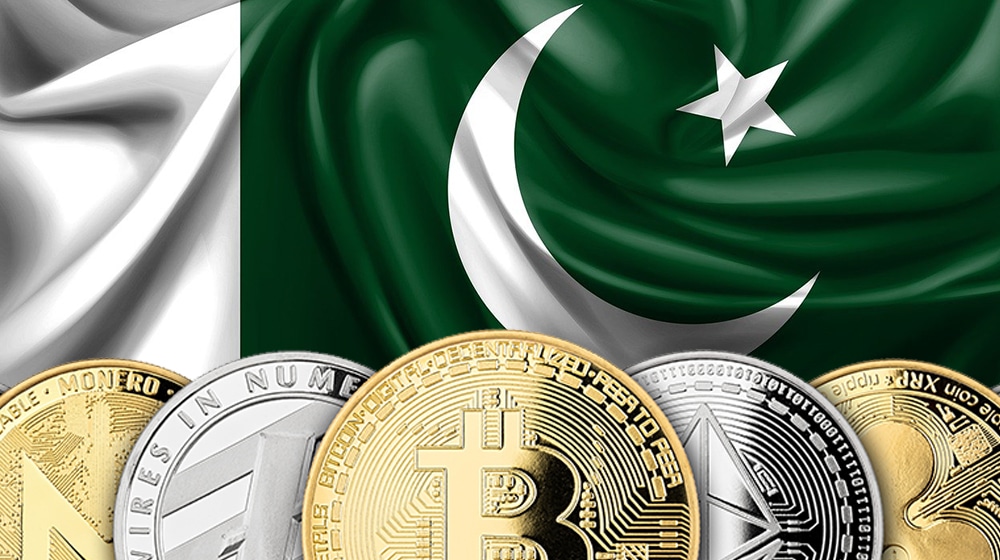Pakistan has rapidly emerged as a global leader in cryptocurrency adoption, with the Finance Ministry confirming an estimated $300 billion in annual crypto transactions and over 25 million active crypto users.
This milestone, highlighted in a statement following a strategic agreement between the Pakistan Crypto Council (PCC) and World Liberty Financial (WLF), signals a new era of blockchain innovation and financial decentralization in the country.
The Finance Ministry underscored Pakistan’s strength as one of the most promising digital economies, driven largely by a youthful population, where over 64% are under the age of 30.
Pakistan’s Digital Economy
Pakistan’s digital economy is undergoing a remarkable transformation. With an ever-expanding internet user base, surpassing 124 million users, and an increasingly digitized financial sector, the country is nurturing an environment ripe for blockchain innovation.
Mobile penetration stands at over 80%, with smartphones becoming a primary tool for financial transactions, education, and business operations. Combined with the world’s third-largest freelance workforce, Pakistani youth are leveraging cryptocurrency to overcome traditional financial barriers and tap into global economic opportunities.
Moreover, government interest in blockchain and crypto regulations is a positive sign. Decentralized finance (DeFi) is quickly becoming a game-changer for emerging markets like Pakistan.
Through the collaboration with World Liberty Financial, Pakistan aims to become a regional leader in DeFi innovation, focusing on:
- Smart contract-based lending and borrowing platforms.
- Decentralized exchanges (DEXs) with low fees tailored to local users.
- Yield farming and staking opportunities for passive income generation.
- Cross-border payment solutions that are faster, cheaper, and more transparent than traditional remittance systems.
Unlocking New Investment Opportunities
The tokenization of real-world assets is another frontier that Pakistan is aggressively exploring. By converting tangible assets such as real estate, gold, and agricultural products into digital tokens on a blockchain, Pakistan can:
- Enhance asset liquidity and make investments accessible to a broader population.
- Lower entry barriers for investors, democratizing access to high-value assets.
- Increase transparency and reduce fraud through immutable blockchain records.
- Attract international investors seeking secure, tokenized exposure to Pakistan’s fast-growing markets.
Through regulatory sandboxes, Pakistan Crypto Council and WLF will pilot tokenization projects that could revolutionize traditional industries, setting new standards in asset management and trading.
Stablecoins pegged to the US Dollar or Pakistani Rupee offer immense potential for streamlining remittances, a vital economic component for Pakistan, which receives around $30 billion annually from its diaspora.
- Instant transactions across borders with minimal fees.
- Reduced reliance on traditional banking systems and money transfer operators.
- Enhanced security and traceability through blockchain technology.
Blockchain Infrastructure: Building the Backbone of Pakistan’s Digital Future
To support these initiatives, Pakistan must invest in robust blockchain infrastructure. The PCC-WLF partnership focuses on:
- Developing secure and scalable blockchain networks.
- Training local talent through specialized programs in blockchain development and security.
- Encouraging startups to innovate in areas such as NFTs, smart contracts, and dApps.
- Fostering academic research and industry partnerships to drive blockchain innovation.
Such efforts will fortify Pakistan’s technological backbone, ensuring resilience, scalability, and leadership in the blockchain sector.
- Clear and supportive regulatory frameworks for crypto assets and blockchain projects,
- Flexible regulatory sandboxes for experimentation and innovation,
- Strong compliance measures aligned with global anti-money laundering (AML) standards,
Pakistan can create a secure and attractive environment for both domestic and international investors.


